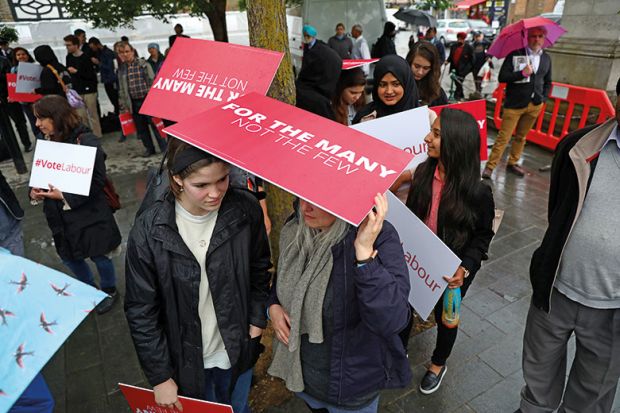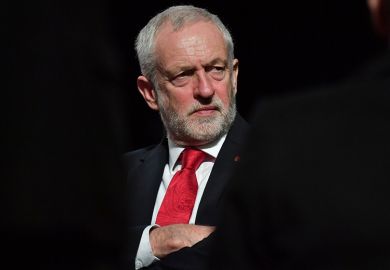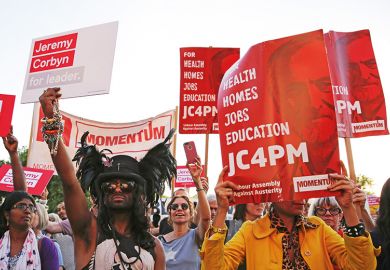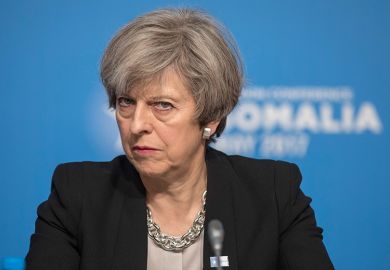Labour targeting of “university seats” in the general election could help to ensure that Theresa May does not have a “blank cheque” with which to scupper higher education interests in the future, according to one of the party’s MPs, who hopes to retain his marginal seat.
Wes Streeting spoke to Times Higher Education following the launch of the party’s manifesto on 16 May, in which it committed to scrapping tuition fees from September and reintroducing student maintenance grants, putting the cost at £11.2 billion a year – by far the most expensive single pledge in the manifesto.
The former National Union of Students president, who is battling to hold on to the Ilford North seat he won by a majority of just 589 in the 2015 election, said: “Labour MPs are fighting to…stop Theresa May from having a blank cheque for the next few years.
“In terms of the university seats that will be contested at this election, people know that by voting for the Liberal Democrats in Cambridge or Bristol West, they would effectively be helping to return a Conservative government…[that] certainly wouldn’t stand up for the interests of the higher education sector.
“The turnout of students and young people generally in previous elections has been abysmal and it’ll be interesting to see [whether] something as bold as restoring grants and scrapping tuition fees will motivate students to turn out in greater numbers.”
In a recent THE data analysis on the marginal constituencies where student voters could have the most impact, University of Oxford associate professor in political sociology Stephen Fisher said that a two percentage point boost to Labour’s vote in student-heavy areas on the Tory target list “might be enough" to help Labour “hold on to a handful” of seats.
Mr Streeting, a long-standing graduate tax advocate, said he “would’ve probably chosen to spend the money on early years and school budgets, where it could make the big difference to social mobility. But that was the pledge Corbyn made when he was elected leader of the Labour Party; he’s sticking to his guns and people will know this is something he cares very much about.”
Many in the sector are sceptical of Mr Corbyn’s policy.
Andy Westwood, a former special adviser to Labour’s John Denham in his time as secretary of state for universities, now professor of further and higher education at the University of Wolverhampton, said we can “pretty much dismiss” the policies.
He added: “Given the oft-quoted support for Labour and Corbyn among students and staff at universities, it’s on campus where this vision may be most popular. But that doesn't mean it’s likely to happen.”
Register to continue
Why register?
- Registration is free and only takes a moment
- Once registered, you can read 3 articles a month
- Sign up for our newsletter
Subscribe
Or subscribe for unlimited access to:
- Unlimited access to news, views, insights & reviews
- Digital editions
- Digital access to THE’s university and college rankings analysis
Already registered or a current subscriber?





